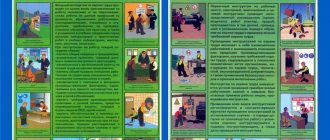There are no prohibitions or restrictions in labor legislation on university students combining work with full-time study. Therefore, any enterprise has the right to hire such employees, including full-time ones.
Hiring a full-time student should be carried out on a general basis, guided by Chapters 10 and 11 of the Labor Code of the Russian Federation.
Many students go to work in their specialty during their studies in companies of their choice, not only in order to earn themselves additional money, but also with the prospect that they will be able to remain in this company after graduation. At the same time, they will already have some experience working in this company, and they will be able to get a promotion faster.
Labor Code of the Russian Federation
The peculiarities of interaction between an employee and an employer in the Russian Federation are regulated by the Labor Code. The rules for drawing up an agreement with an employee are reflected in Chapters 10-11. In accordance with Article 59 of the Labor Code of the Russian Federation, if a student is studying full-time at a university, the employer can only enter into a fixed-term contract with a potential employee. This is due to the fact that usually full-time students only want to find a part-time job for the summer.
Attention
If the employee has not yet reached the age of majority, a shortened working week must be established. The rule is enshrined in Article 92 of the Labor Code of the Russian Federation. The condition must be reflected in the contract.
If a person has already reached the age of majority, he also has the right to ask the employer to establish a part-time working week. To do this, you will need to draw up an application or discuss cooperation during the signing of the employment contract. The rule is enshrined in Article 93 of the Labor Code of the Russian Federation.
In accordance with Article 173 of the Labor Code of the Russian Federation and Federal Law No. 125 of August 22, 1996, the employer is obliged to provide a citizen who is receiving an education with paid study leave to prepare for and pass exams. The length of the period depends on the course of study and the basis for the leave.
Additional Information
Primary students receive the shortest period of rest in connection with their studies. The most time is given to graduate students. Their study leave can be up to 4 months.
Guarantees and compensation for workers
The guarantees and compensation that an employer must provide to a working student are listed in Art. 173 Labor Code of the Russian Federation.
The main guarantee is the provision of leave to continue studies, and the main compensation is paid leave.
In Art. 173 of the Labor Code of the Russian Federation states that the employer is obliged to provide and pay a student working for him a vacation of duration:
- 40 days per year for passing the session for working students of junior years of study at a university in a bachelor's, specialist's or master's degree program, regardless of the form of education;
- 50 days for passing tests and exams in senior courses, until graduation;
- up to 4 months for writing a thesis and its defense, as well as for preparing and passing state exams.
These guarantees apply to both full-time university students and part-time students.
For students of secondary vocational education, art. 174 of the Labor Code of the Russian Federation establishes the following duration of leave:
- 30 calendar days to pass the session for 1st and 2nd year students receiving secondary vocational education;
- 40 days to pass the session in other courses before the end of the training program;
- 2 months to prepare the student for defending his thesis and passing state exams.
If the educational institution where the student is studying is located in another city, then the employer is obliged to pay the full cost of travel for university students, and 50% for technical school and college students.
Hiring a full-time student
If a company hires a person studying full-time at a university, the citizen acquires the same rights and responsibilities as other employees of the organization. Interaction is carried out on the basis of the norms of the Labor Code of the Russian Federation. If a citizen registers with a company for an internship, an agreement is concluded between the employer and the educational institution. A standard agreement must be signed if the student undergoes an internship at the company. A fixed-term contract is concluded with a full-time student.
Step-by-step instructions for applying for a job as a full-time student
The Labor Code of the Russian Federation does not reflect provisions regarding the hiring of full-time students. However, a number of features still exist. The procedure is carried out according to the following scheme:
- A citizen comes for an interview. The employer determines whether he is ready to begin cooperation with the student. The age of the applicants should be taken into account. Not all students studying at the university have reached the age of majority. An agreement can only be concluded with persons over 16 years of age. The Labor Code provides for a number of restrictions for minor employees. Such citizens cannot perform a list of certain works fixed by law. The employer has additional responsibilities. He will have to send the candidate for a mandatory medical examination at his own expense. A probationary period cannot be established for minor citizens.
- The student provides a package of documents. The citizen is introduced to the norms in force in the organization. Then authorized employees offer to sign an employment contract.
- The employer issues an order to hire a student. If a citizen starts working for the first time, a work book is created. Additionally, SNILS is issued if the document is missing. The person must leave a signature on the order. The fact is confirmed by familiarity with the document. Actions must be completed within 3 days from the date of commencement of work.
- The citizen begins his work duties.
An employment contract for part-time work cannot be concluded with a citizen solely on the basis that the person is a full-time student at a university. Studying cannot be considered as an additional place of employment.
For your information
It is worth paying attention to the working hours of a full-time student. Citizens in this category can rarely work 8 hours a day. The law establishes restrictions for minor citizens. They cannot work more than 35 hours a week. The duration of the working day cannot exceed 7 hours. The employer must be prepared for the need to establish a special schedule for a student employee.
Guarantees for students receiving higher education
Part 1 art.
59 of the Labor Code of the Russian Federation provides for the conclusion of a fixed-term employment contract in cases where labor relations cannot be established for an indefinite period due to a legislative act or other reasons. Concluding a fixed-term contract to perform work directly related to practice, vocational training or additional vocational education in the form of an internship is an imperative requirement of the legislator, which is based on the fact that students need to obtain practical and qualifying knowledge.
A striking example is lawyers. In accordance with paragraph 4 of Art. 28 of the Federal Law of May 31, 2002 No. 63-FZ “On advocacy and the legal profession of the Russian Federation,” a lawyer has the right to have trainees. An employment contract is concluded with the intern for the duration of the internship (from one to two years).
A fixed-term employment contract with a trainee, due to its specifics, must meet the following requirements arising from the norms of labor legislation (Article 59 of the Labor Code of the Russian Federation):
- Labor relations cannot be formalized for an indefinite period.
- The employee’s labor function must correspond to the nature of the training.
- The scope of work and its conditions must be clearly defined.
- The duration of the internship (internship), that is, the student’s work must be limited in time.
The legislator has provided the opportunity to conclude a fixed-term employment contract with a student, which is based on the consent of the parties.
By agreement of the parties, a fixed-term employment contract can be concluded with persons receiving full-time education (Part 2 of Article 59 of the Labor Code of the Russian Federation). Forcing a student to enter into a fixed-term employment contract is not permitted.
The temporary nature of the work, as well as the employee’s labor function and its content, must also be clearly defined in the text of the fixed-term employment contract due to the legal nature of such an agreement. This position is confirmed by paragraph 13 of the Resolution of the Plenum of the Supreme Court of the Russian Federation dated March 17, 2004 No. 2 “On the application by the courts of the Russian Federation of the Labor Code of the Russian Federation.”
The recommendation is as follows: when deciding on the validity of concluding a fixed-term employment contract with an employee, it should be taken into account that such an agreement is concluded when the employment relationship cannot be established for an indefinite period, taking into account the nature of the work to be done or the conditions for its implementation. However, the same resolution limits the conclusion of multiple fixed-term employment contracts with an employee for a short period to perform the same job function. Such actions can be assessed as concluding an employment contract for an indefinite period.
However, in relation to students or employees sent for training, the legislator also introduced such tools as concluding a student agreement. This type of relationship is becoming increasingly popular, since the employer is clearly interested in cooperation with qualified personnel, and graduates are interested in having a job after graduation.
In accordance with Art. 198 of the Labor Code of the Russian Federation, an employer-organization has the right to conclude a student agreement with a job seeker or an employee of this organization to receive education without interruption or without interruption from work. Accordingly, the subject of the apprenticeship agreement is the employer’s obligation to provide the employee with the opportunity to study and the corresponding obligation of the employee to undergo such training and, in accordance with the qualifications obtained, to work for the employer under an employment contract for the period established in the apprenticeship agreement (Article 199 of the Labor Code of the Russian Federation). Another feature of such an agreement is the need to “attach” it to the employment agreement (contract):
- in relation to a job seeker, it is necessary to conclude an employment agreement (contract) after completing an apprenticeship (paragraph 1 of article 199 of the Labor Code of the Russian Federation);
- in relation to an employee of an organization, a student agreement is an additional agreement to the employment contract (paragraph 2, article 198 of the Labor Code of the Russian Federation).
The legislator accordingly established two categories of persons with whom such an agreement can be concluded. This is a future employee or an employee of an organization with whom an employment contract has already been concluded.
Possible options for formalizing relationships with persons who have entered or are undergoing training have been listed above. However, there are a number of important practical issues that arise when forming relationships with students and which must be remembered.
- A student is hired in the usual manner provided for in Art. 65, 66 of the Labor Code of the Russian Federation, taking into account the fact that, as a rule, this is the first employment and the employer is obliged to issue a work book and an insurance certificate of state pension insurance in the absence of it. It is not required to confirm that the student is studying in secondary specialized or higher education organizations.
- It should be additionally noted that when concluding an employment agreement with a student who has not reached the age of majority, the employer does not have the right to establish a probationary period (Article 70 of the Labor Code of the Russian Federation). The same prohibition applies to persons entering into a fixed-term employment contract for a period of up to two months. Among other things, when concluding an employment contract with a person who has completed training in secondary vocational or higher education programs, the employer also does not have the right to establish a probationary period for one calendar year after completion of training if the former student is employed for the first time. Also, a probationary period is not established for persons who have successfully completed an apprenticeship when concluding an employment contract with the employer under the contract with whom they were trained (Article 207 of the Labor Code of the Russian Federation).
- The legislator does not regulate the procedure for registering a referral for training for an employee of an organization. It seems that fixing this fact in a free-form order will be sufficient. Such an order must indicate who is being sent to study what profession and to what educational institution.
Guarantees and compensation for students
The main feature of labor relations with students for the employer is a certain set of benefits, guarantees and compensation, which must be provided without fail.
It is important to note that in accordance with Art. 177 of the Labor Code of the Russian Federation, guarantees and compensation for employees combining work with training are provided when receiving education at the appropriate level for the first time. However, an employee who is not receiving education at the appropriate level for the first time is not provided with guarantees and compensation unless the parties stipulate their provision in the relevant agreements (in an employment contract, in a collective agreement).
The same position is confirmed by the Determination of the Constitutional Court of the Russian Federation dated 04/08/2004 No. 167-O: the norm of the Labor Code of the Russian Federation establishing the corresponding condition does not prevent the solution of the issue of guarantees and compensation for employees receiving a second higher education within the framework of collective-contractual and individual-contractual regulation and does not excludes the employer's obligation to provide such employees with benefits in connection with training, if this is provided for in a collective agreement or agreement between the employee and the employer.
Guarantees and compensations provided by the employer to employees are differentiated depending on the level of education (higher, secondary vocational) and type (full-time, part-time) and consist of granting study leave with or without pay. Another type of preference that an employer can provide to a student is reduced working hours in cases and under conditions provided for by labor legislation.
In accordance with Art. 173 of the Labor Code of the Russian Federation, for employees sent for training by the employer or who entered training on their own and who successfully complete a bachelor’s, specialist’s or master’s degree in part-time and part-time forms of study, the employer provides additional leave with preservation of average earnings for:
- passing intermediate certification in the first and second years, respectively - 40 calendar days, in each of the subsequent courses, respectively - 50 calendar days (when mastering educational programs of higher education in a shortened time in the second year - 50 calendar days);
- passing the state final certification - up to four months in accordance with the curriculum of the higher education educational program mastered by the employee.
The employer is obliged to provide leave without pay:
- for employees admitted to entrance examinations – 15 calendar days;
- employees - students of preparatory departments of educational organizations of higher education to pass the final certification - 15 calendar days;
- for employees studying full-time, combining education with work, for passing intermediate certification - 15 calendar days per academic year;
- for preparing and defending the final qualifying thesis and passing the final state exams – 4 months;
- for passing final state exams – 1 month.
Additionally, for students who successfully master bachelor's, specialist's or master's degree programs via correspondence study, the employer pays travel to and from the location of the educational institution once per academic year, and half the cost of travel for employees who master secondary vocational education programs.
At the same time, the amount, conditions and procedure for compensation of expenses for payment of travel costs and baggage transportation to the place of use of vacation and back are determined by collective agreements, local regulations adopted taking into account the opinion of the elected bodies of primary trade union organizations, labor contracts (Article 325 of the Labor Code of the Russian Federation).
Compliance with this provision by the employer in local regulations or in employment contracts will minimize financial costs if an employee abuses his rights. This position was confirmed, in particular, in the Appeal Ruling of the Supreme Court of the Komi Republic dated February 27, 2014 in case No. 33-919/2014.
For employees studying part-time and part-time forms of education, for a period of up to 10 academic months before the start of the state final certification, at their request, a working week is established, shortened by 7 hours. During the period of release from work, these employees are paid 50 percent of the average earnings at their main place of work, but not less than the minimum wage.
Required documents
In order for a company to agree to hire a student, he must prepare a package of documents and provide them to the employer. The list must include:
- passport;
- document confirming completion of training;
- work book, if available;
- TIN and SNILS, if available;
- compulsory medical insurance policy.
Additional information
If a person gets a job for the first time, he must purchase a new work book. The employer will fill it out. The student must obtain TIN and SNILS independently.
Design features
There are some special features when applying for a student job.
Documentation
To find a job, a student must submit the following documents to the employer:
- your passport;
- certificate of training;
- compulsory medical insurance policy;
- work book, if any;
- INN and SNILS, if available.
When hiring for the first time, the employer issues a work book for the employee, and the employee must obtain the TIN and SNILS independently.
Registration of the contract
When drawing up a contract with a student, you must take into account:
- The contract must be drawn up in writing - Art. 67 Labor Code of the Russian Federation;
- the content of the agreement must be drawn up in accordance with Art. 57 of the Labor Code of the Russian Federation, working hours and rest hours must be discussed with the student in advance;
- students have the right to part-time work, in accordance with Art. 93 Labor Code of the Russian Federation; if a student asks, then this must be reflected;
- if an employee-student is not yet 18 years old, then he can work no more than 35 hours a week - Art. 92 Labor Code of the Russian Federation;
- persons under 18 years of age cannot be assigned a probationary period - Art. 70 Labor Code of the Russian Federation.
The employment contract is signed by both parties.
The order of acceptance to work
If a company hires a new employee, an order will be required. It is drawn up according to form No. T-1. The document must reflect the main provisions of the employment contract signed with the student. The completed order must be familiarized to the employee in respect of whom the local regulatory act is being drawn up.
To confirm the fact of familiarization with the order, the person must sign. Actions must be completed within 3 days from the date of commencement of work duties. At the request of the student being hired, a copy of the order, certified in accordance with the rules, can be provided. orders can be found here.
Full and part time
Students can work full-time or part-time. If a minor citizen is hired by a company, he cannot work more than 7 hours a day. This rule is enshrined in the Labor Code of the Russian Federation. Adult citizens have the right to request part-time work at their own request. Information about this must be reflected in the employment contract. The agreement must indicate:
- which days will be considered working days;
- duration of work per day and per week;
- breaks during work activities, if any;
- start and end times of the working day;
- weekend.
Please note:
Additionally, the agreement must clearly state that the student is working part-time.
Part-time students are usually accommodated on a general basis. They are assigned full-time work unless they are minors. Otherwise, it is possible by prior agreement of the parties. The specifics of the upcoming cooperation when applying for a job must be documented.
Entry in the work book
If the student’s work is the main one, and he has been working for more than 5 days, the employer is obliged to make an entry in the work book. This is stated in Art. 65 Labor Code of the Russian Federation.
The entries in the work record will look like this (as in the standard case):
Experience
To calculate a pension, an insurance period is required, that is, the period during which contributions to the Pension Fund were made for the employee.
This has nothing to do with working hours and the basis for calculating contributions.
Working hours
In accordance with Art. 93 of the Labor Code of the Russian Federation, an employee has the right to ask the employer in writing to establish a part-time working week for him.
The parties can reach an agreement, so the length of the student’s working week will be any.
If the student is a minor, then according to Art. 92 of the Labor Code of the Russian Federation, he must work no more than 35 hours a week.
Employer Responsibilities
The list of responsibilities is fixed by the Labor Code of the Russian Federation. The list is relevant regardless of who is hired. The employer is obliged:
- comply with current legislation;
- provide equal pay for equal work;
- provide work in accordance with the employment contract;
- provide equipment and other means necessary to perform job duties;
- introduce local regulations;
- pay wages;
- comply with the instructions of the Federal executive body;
- conduct collective negotiations and conclude a collective agreement;
- provide for household needs in connection with the performance of work duties;
- product of compulsory social insurance;
- compensate for harm that the employee suffered as a result of performing work duties;
- consider the instructions of trade union bodies.
Attention
There are also special responsibilities that arise only if a student is hired. Thus, the employer is obliged to provide student leave. If a minor is hired, the company is obliged to adjust the work schedule in accordance with the requirements of current legislation.
Tips: where and how to look
Don't look for work in the "for students" section
Almost all job search sites have a “Work for Students” section. This includes part-time jobs that do not require qualified skills, for which the employer will pay little money - transcribing recordings, distributing leaflets, and so on. If you are happy with this option, great. If you are looking for something more serious, then it is better to study the general catalog of vacancies. It is possible that the employer will agree to hire a person without experience in order to train him himself.
Find out about vacancies at your university
https://www.pexels.com/
In addition to practice, there are options for working at the university itself. For example, you can check tests, help organize seminars, work on the admissions committee in the summer, or get a part-time job in a university laboratory (if there is one). You can find out about such vacancies either in the dean’s office or at the department.
Do not exclude the option of an increased scholarship (we have already written about what scholarships there are and what to do to increase educational payments). In addition to excellent studies, you can participate in the scientific life of the university, which also brings its own financial bonuses.
Get settled in the summer
In the summer, students do not have classes, this time will be the best for part-time work. But keep one thing in mind: when you join a new team, it takes some time to adapt. So you shouldn’t expect effective work right away. If you have other plans for the summer, look for a job in the fall. Just wait until your schedule is finalized, otherwise it will be very difficult to balance study and work later.
Try to find a remote job
Freelancing is a salvation for those who need work, but there is no possibility of personal presence. Such employment with a flexible schedule will allow you to work in comfortable conditions. The Internet is full of such vacancies. Basically, copywriters, managers and programmers are required for remote work. Many young students underestimate their skills and therefore do not submit their resume. Remember, most companies now conduct test assignments. Perhaps you are the person who will cope with this test better than anyone else.
Probation
The Labor Code allows the employer to determine the need for a probationary period at his own request. If the company decides that a period is necessary, it will be established. The existence of a probationary period must be reflected in the agreement between the employee and the organization.
IMPORTANT
The rule applies if the student is over 18 years old. If the citizen is younger, the law does not allow a probationary period to be established. Cooperation should immediately begin on a permanent basis.
Hiring a full-time student enrolled in the Russian Socialist Republic
If a student is a member of the RSO, the Labor Code of the Russian Federation does not fix a special procedure for hiring. Manipulation will be carried out on a general basis. The employer will need to take into account the potential employee's age and discuss scheduling considerations.
For your information
All the nuances of cooperation are reflected in the contract. The paper must be provided to the employee for review. A person signs an agreement if he agrees with all its provisions. Only after this can the citizen begin to work.
Nuances
By hiring a full-time student, the employer hopes that the citizen will continue to perform duties in the company after graduation. The organization will be able to obtain trained specialists with higher education. Additionally, the institution may pay students significantly less than a full-time employee in a similar position.
Attention
Interaction with persons studying at higher educational institutions is associated with a number of additional nuances. Thus, a student employee has the right to demand the establishment of a shortened working week. Additionally, the citizen will periodically go to the session. Study leave cannot be combined with the main one. The period is paid. The organization cannot provide student leave if the work is the main one. Rejection of the application will be considered a violation of the employee's rights.
The student will be absent from work longer than other employees. The duration of student leave can be up to 4 months. This deadline is set for graduates. Primary school students are absent less. The average session duration is 1 month.
Comments Showing 0 of 0
Procedure for paying study leave for part-time students
The procedure for hiring part-time students is similar to that for full-time students. But there is a difference, if he studies again, receives a second higher education. If the student has his first education, then all types of security and social guarantees are provided, specified in Article 173 of the Labor Code of the Russian Federation.
This document is not mandatory, it is rather confirmatory in nature. A strict sample is not established by law. The document indicates to whom the document was sent and from whom, below is an application with a request to accept the number, type and conditions of work for the specified position. Below is the date of compilation, signature of the candidate and the HR specialist.
It is important that the above guarantees and compensations are established for workers who are trained in institutions that have the appropriate state accreditation. Guarantees and compensation for employees who combine work with training in bachelor's degree programs, specialty programs or master's programs that do not have state accreditation are established by a collective or labor agreement.
- passing intermediate certification in the first and second years - 30 calendar days, in each of the subsequent courses - 40 calendar days;
- passing the state final certification - up to two months in accordance with the curriculum of the educational program of secondary vocational education mastered by the employee;
- for employees admitted to entrance examinations – 10 calendar days;
- employees receiving secondary vocational education on a full-time basis and combining education with work, to pass intermediate certification - 10 calendar days per academic year;
- for passing the state final certification – up to 2 months.
The rules for granting leave to persons admitted to seek the academic degree of Candidate of Sciences or Doctor of Sciences are approved by Decree of the Government of the Russian Federation of May 5, 2014 No. 409.
What actions should foreign citizens studying at higher educational institutions of the Russian Federation take in order to officially get a job?
First, you need to find out whether the state of which the student is a citizen has any preferences in the Russian labor market. There are four such states: Armenia, Belarus, Kazakhstan and Kyrgyzstan. Citizens of these states have the right to work in Russia without permits.
Without issuing permits, students from any country can work during the holidays, and at the university itself or in organizations created by universities, they can work without a work permit and in their free time from study, not limited by the duration of the holidays.
note
Foreign students who have a temporary residence permit, residence permit, refugee status, as well as those foreign citizens who have been granted temporary asylum on the territory of the Russian Federation have the right to work in the Russian Federation without obtaining a permit.
In other cases, to be able to work in Russia, you must obtain a work permit. It can only be obtained by students studying full-time in programs and universities that have state accreditation.
The first step is to find an employer willing to hire a foreign student. The place of future work must be located in the same region (subject) as the university where the foreign citizen is studying. You cannot study in Moscow and work in the Moscow region.
After an interview with the employer, when the parties have reached an agreement on the terms of the work provided, it is necessary to conclude an employment contract, including the condition that the contract comes into force from the moment the employee receives a work permit and is allowed by order of the enterprise to perform duties. The contract should provide empty columns where you subsequently need to enter the details of the VHI policy.
After an employer has been found, you should contact the university administration for a certificate of study at the university. The certificate is issued in a specific form approved by the migration authorities. Currently, the certificate form approved by Order of the Federal Migration Service dated December 18, 2013 No. 687 is in force. It is also necessary to obtain a notarized copy of the license from the university.
Once the documents are collected, it’s up to you. You must be photographed (2 photographs 3x4), undergo tests and obtain a medical certificate confirming that you do not have any diseases that pose a danger to others.
This is a normal procedure that all foreign citizens undergo when obtaining patents, work permits, temporary residence permits, etc. It is best to undergo these medical procedures in migration centers, where all this is streamlined.
The cost of such an examination is no more than 5,000 rubles.
Important
At any insurance company, take out a VHI policy for one year to cover medical expenses in case of illness. Today the cost of the policy is about 4,000 rubles.
Make a notarized translation of the passport, make copies of the migration card and the tear-off part of the arrival notice (migration registration / registration).
From the organization:
- — copy of the Taxpayer Identification Number (notarized);
- — copy of OGRN (notarized);
- — employment contract (original copy);
From the university:
- — a copy of the license on the educational activities of the university (notarial);
- — certificate from the university in the prescribed form.
From an international student:
- — medical report;
- — receipt of payment of state duty;
- — notarized translation of the passport;
- — a copy of the VHI policy;
- — photo 3x4 = 2 pcs.;
- — a copy of the migration card;
- — a copy of the detachable part of the arrival notice.
Documents are submitted to the migration center. Please note that the issued work permit will contain the profession/specialty that you indicated in the application. You will not be able to work in another profession without amending your permit. The profession must be indicated in accordance with OKPDTR.
The work permit is issued for a period of one year and can be renewed several times during your studies at the university.
Once you have the permit in your hands, you can go to work. Starting from this day, the employer must notify the migration authorities (using the approved form) and the employment center (using the approved form) that he has hired you within three working days.
To receive wages, you must open a bank account and provide your employer with its details. Cash payments between an organization that is a resident of the Russian Federation and a non-resident employee are prohibited.
There are no prohibitions or restrictions in labor legislation on university students combining work with full-time study. Therefore, any enterprise has the right to hire such employees, including full-time ones.
Hiring a full-time student should be carried out on a general basis, guided by Chapters 10 and 11 of the Labor Code of the Russian Federation.
Many students go to work in their specialty during their studies in companies of their choice, not only in order to earn themselves additional money, but also with the prospect that they will be able to remain in this company after graduation. At the same time, they will already have some experience working in this company, and they will be able to get a promotion faster.
Registration of labor relations with a full-time university student, as with any other employee, must begin with the preparation of an employment contract. This agreement can be concluded either indefinitely or for any period of no more than five years.
Operating mode
Since it is quite difficult to combine study and work, full-time students are generally suited to working part-time or with a free (flexible) work schedule.
The minimum duration of both the working day and the working week is not established by law. In this regard, the parties to the employment contract have the opportunity to agree on a suitable work schedule for the student employee at their discretion.
For example, you can set for him both a shortened work week and part-time work or a shift at the same time.
Also, this category of workers can be set up for flexible working hours.
In this case, the employee will need to work the appropriate number of working hours in certain accounting periods (day, week, month, etc.) (Article 102 of the Labor Code of the Russian Federation).
Reception order
Hiring a full-time student must also be formalized by order (Form No. T-1). Its content must fully comply with the employment contract signed with this employee.
The issued order should be familiarized to the student employee against signature within three days from the moment he began to perform his duties at the workplace. At the request of this employee, the personnel service must issue him a copy of this order, certified accordingly.
- when passing intermediate certification -} 15 calendar days per academic year,
- when preparing and defending a final qualifying thesis, as well as passing final state exams —} 4 months,
- when passing final state exams -} 1 month.
If a working student studies at a university without state accreditation, then such guarantees can be stipulated in the student’s employment contract or in the collective agreement of the company where he works.
92 of the Labor Code of the Russian Federation, he must work no more than 35 hours a week. Personnel nuances When registering students for work, there are some personnel nuances. They need to be taken into account. Otherwise, problems with the labor inspectorate cannot be avoided during the next scheduled or unscheduled inspection.
Hiring a Full-Time Student Full-time students have the same rights and responsibilities at work as “essential” employees. A full-time employee has the right to demand a part-time work week.
- passport;
- document confirming completion of training;
- work book, if available;
- TIN and SNILS, if available;
- compulsory medical insurance policy.









